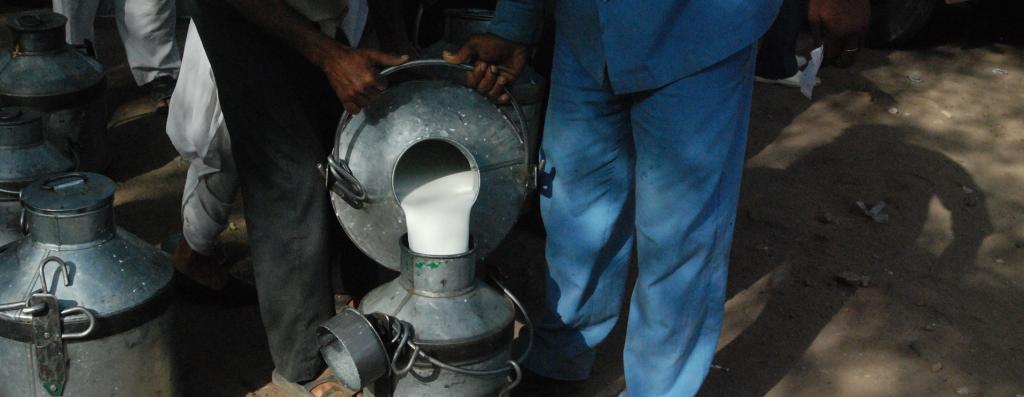

Dairy sector hit by migrant workers headed home



The supply of milk and milk products took a hit as India went under lockdown, a measure taken to control the spread of the novel coronavirus disease (COVID-19) pandemic.
Milk collection centres were shut and milkmen were barred from entering villages in several states, affecting supply.
Co-operative units — that opened with the help of the administration — suffered from a lack of labour supply, as fears of unemployment led migrant workers to go back to their native villages.
There has also been an upsurge in the demand for milk in cartons, ultra-heat treated (UHT) milk and cottage cheese, after the lockdown raised concerns about the supply of essential goods to the public.
Cartoned milk remains fresh relatively longer, while UHT milk has a shelf-life of up to six months, with virtually no bacteria or preservatives.
The demand for UHT cartoned milk rose by 50 per cent in the first four days of the lockdown, according to the Gujarat Co-operative Milk Marketing Federation Ltd or Amul, the country’s largest milk producer.
The consumption of cottage cheese also increased after rumours spread that meat products caused COVID-19.
Approximately 75 per cent of the production of cartoned UHT milk is shared between Amul and Karnataka Co-operative Milk Producer’s Federation Ltd or Nandini.
Amul sells 5 per cent of its total milk in cartons. The dairy co-operative procures 26 million litres of milk daily.
Approximately 16 million litres is used by AMUL as pasteurised milk. Fresh milk products like curd, buttermilk, cottage cheese, cheese, ice creams and yoghurts are made from around 1.5 million litres of milk.
“There is no lack of milk, but packaging material,” RS Sodhi, managing director of AMUL, told Down To Earth.
“We have 15 days of tetrapack packaging material left, after which we will face challenges,” he added.
Tetra Pak India Pvt Ltd — the Pune-based company that manufactures the packaging materials — had to stop operations after the call for the lockdown.
The company, however, resumed operations once milk was listed as an essential commodity by the Union government, two days into the lockdown.
The challenge for the company is to manage labour for production, since the lockdown does not allow more than three to gather, according to Lodhi.
Amul has a dedicated train between Gujarat and Delhi to supply milk.
It is, however, tougher for smaller businesses to keep up.
Dinshaw — a Madhya Pradesh-based private dairy company — has closed its procurement centres.
A milk co-operative based out of Madhya Pradesh’s Harda district stopped distributing milk to private dairies — including Dinshaw — for the past four days.
“I don’t know how long this lockdown will go on; it has already broken our economy,” said Balram Sirohi, a member of the co-operative.
In Punjab, private dairy companies too closed procurement centres.
Punjab-based cooperatives and 26 private dairy companies procure eight million litres of milk daily through collection centers, of which 70 per cent supply is in the form of pasteurised milk.
Dairy farmers are forced to choose between self-consumption or to feed their livestock.
They stop feeding costly fodder to their cattle, a measure that reduces the quantity of milk production.
India has 73 million dairy farmers who usually own one or two cows and buffaloes that produce milk and help sustain their livelihood.
The contribution of the dairy industry to the country’s gross domestic product (GDP) is quite significant. Dairy accounted for Rs 422,000 crore of the GDP in 2017, while the contribution of grain production was at Rs 350,000 crore for the same year.
We are a voice to you; you have been a support to us. Together we build journalism that is independent, credible and fearless. You can further help us by making a donation. This will mean a lot for our ability to bring you news, perspectives and analysis from the ground so that we can make change together.

Comments are moderated and will be published only after the site moderator’s approval. Please use a genuine email ID and provide your name. Selected comments may also be used in the ‘Letters’ section of the Down To Earth print edition.